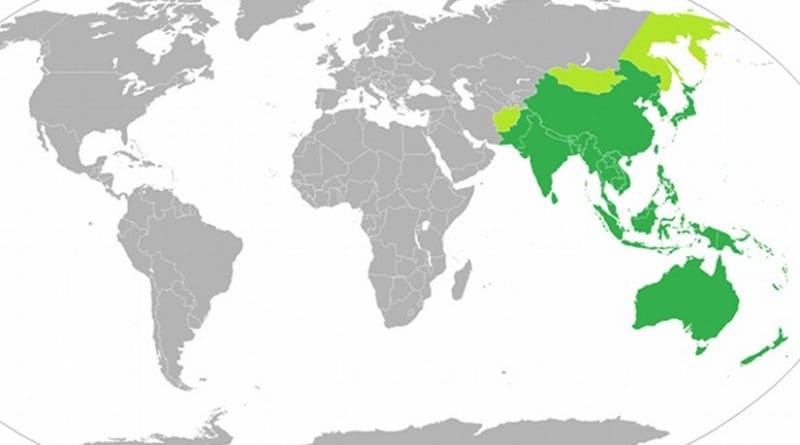Regional Collaboration Key To Unlocking Resilient And Sustainable Region
The fifth Asia-Pacific Forum on Sustainable Development (APFSD) closed at the UN Conference Centre in Bangkok with a call for greater regional collaboration to tackle the challenges of building a more resilient and sustainable region.
Organized by the United Nations Economic and Social Commission for Asia and the Pacific (ESCAP) from 28 to 30 March, APFSD served as a platform for over 750 representatives from 53 Member States to share their achievements, challenges and the opportunities arising from the 2030 Agenda for Sustainable Development under the theme ‘Transformation towards sustainable and resilient societies.’
In a video message to the forum, UN Deputy-Secretary-General Amina J. Mohammed said, “One key challenge for the countries of Asia the Pacific is how to pursue a more integrated approach to development in which there is dignity for all, ‘leaving no one behind’ and the full realization of human rights, equality, social justice and protection of the natural environment.”
This year, APFSD reviewed progress on Sustainable Development Goals (SDG) 6 (clean water and sanitation), (SDG) 7 (affordable and clean energy), SDG 11 (sustainable cities and communities), SDG 12 (responsible consumption and production), SDG 15 (life on land) and SDG 17 (partnership for the Goals).
Delegates concluded that to build resilience against recurrent shocks in the region such as flooding, pollution, and commodity price volatility, societies need to focus on four types of resilience capacities—anticipatory, absorptive, adaptive, and transformative. Although countries in the region are setting up early warning systems, mainstreaming climate change and investing in social protection systems, much more needs to be done to implement policy responses that will help strengthen countries’ resilience.
“APFSD deliberations this year have laid the foundation for a concerted and effective regional response to ensure that our region becomes more resilient and sustainable,” said UN Under-Secretary-General and Executive Secretary of ESCAP Dr. Shamshad Akhtar. “While the countries of Asia and the Pacific are forging ahead in this common endeavor, much more work remains to be done to successfully implement the 2030 Agenda. APFSD and ESCAP will continue to support crucial dialogue among Member States, to share challenges and best practices to accelerate the implementation of the SDGs.”
In his address as Outgoing Chair, H.E Dr. Ahsan Iqbal Chaudhary, Federal Minister for Interior, Planning, Planning, Development and Reforms of Pakistan said, “I sincerely hope that the APFSD will continue to play an important role by supporting crucial dialogue amongst Member States, sharing experiences and strengthening implementation in order to achieve sustainable development in Asia and the Pacific.”
H.E. Mr. Don Prawinai Minister of Foreign Affairs, Thailand added, “Thailand fully supports APFSD as a significant platform for countries in the Asia-Pacific region to exchange success stories, take stock of the challenges and discuss ways forward to realize sustainable development. This year’s APFSD topic on resilience is relevant to every country, as a resilient society is better prepared to take on all challenges, whether they be disasters, environmental degradation, climate change or rapid urbanization.”
During the three-day forum, country and civil society representatives, academics, business representatives and development agents from across the region advanced the dialogue on the readiness of the region to identify specific resilience capacities needed to effect the transformations envisioned in the 2030 Agenda, with civil society underscoring the need to redefine resilience by placing people’s priorities at its centre.
ESCAP also presented progress on the regional road map for implementing the 2030 Agenda, agreed at the Fourth APFSD. Outcomes from APFSD will provide input into the global discussions held at the High-Level Political Forum in New York in July this year.

